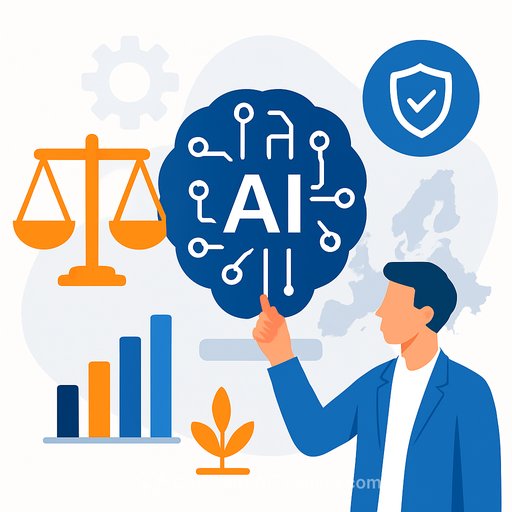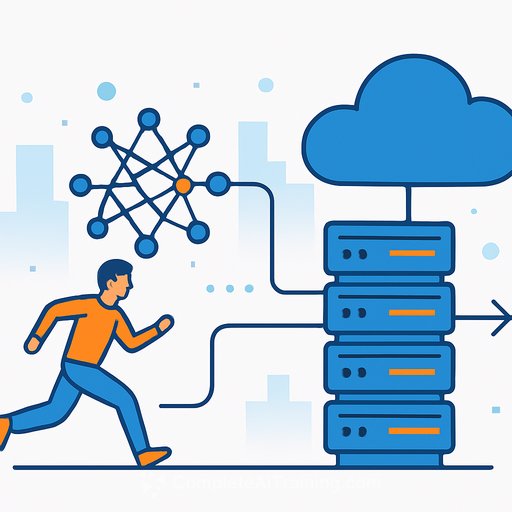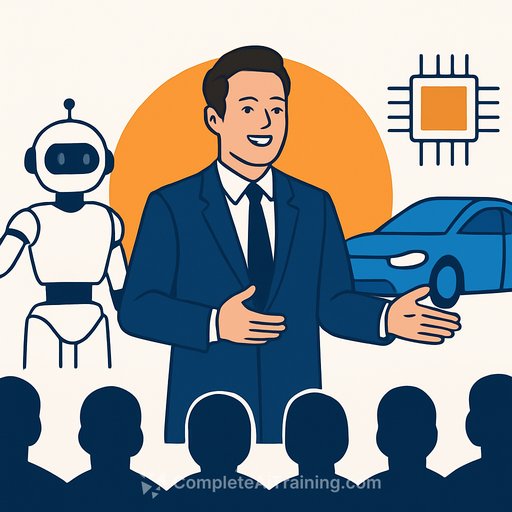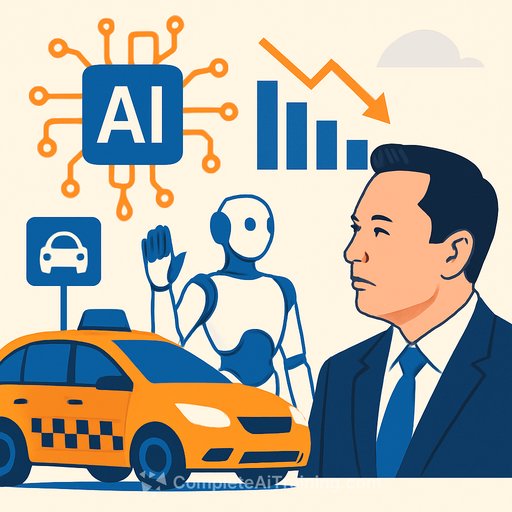IPAI Heilbronn: Germany's Bet on Applied AI, Talent Density, and Strategic Autonomy
Germany is building an AI engine with one goal: move from safe regulation to decisive execution. The Innovation Park Artificial Intelligence (IPAI) in Heilbronn is the flagship. It blends research, industry, and real-world testing to convert ideas into deployable products at scale.
For executives, this is a signal. If your European AI plans depend on long approval cycles, imported tech stacks, or siloed R&D, the ground is shifting. IPAI is designed to lower friction and create outcomes-fast learning loops, credible pilots, and a deep talent bench.
What IPAI Is
IPAI is a 40-hectare AI hub in Baden-Württemberg. Thirty-three hectares will be built infrastructure; the rest is dedicated to drone testing, smart farming, and real-lab environments.
Development started in 2022 and already includes more than 60 partners and EUR 50 million in state funding. The headquarters, IPAI SPACES, offers 6,500 square metres of work areas and shared AI infrastructure for members.
How the Model Works
The core idea is deliberate mixing. Finance, tech, arts, humanities, and industry share space and social zones designed for informal collisions. No single brand dominates: large corporates like Audi sit next to SMEs, start-ups, and independent experts.
There are workspaces built for parents and child-friendly areas, widening participation and access to talent. The aim is not a corporate campus-it's an ecosystem built for experimentation and speed.
Scale and Timeline
By the end of 2025, IPAI CAMPUS will expand to a 30-hectare site hosting more than 5,000 AI professionals, with integrated data centres and field testing. Universities across Germany will open local branches in Heilbronn to reinforce applied research.
The site will also host Europe's largest programming school to develop algorithmic thinking, software engineering foundations, and practical problem-solving skills. Expect a consistent pipeline of graduates who understand both the technical and conceptual sides of AI systems.
Strategic Intent
IPAI is a pivot in German industrial policy-from incremental improvement to ecosystem acceleration. It moves beyond sector silos and classic R&D structures to support agility, creativity, and rapid prototyping.
Official goals include ethical AI, European digital sovereignty, and a collaborative environment across research, industry, and public institutions. The project also aims to increase public trust and responsible adoption across organizations.
National Stakes
IPAI is the testbed for Germany's AI strategy: technological sovereignty, ethical leadership, and strategic competitiveness. The combination of universities, data centres, real-labs, and open collaboration seeks to build critical mass at home-without defaulting to foreign Big Tech dependencies.
Done right, this creates a sustainable domestic base for long-term AI capacity. For a current policy reference, see the Federal Government's AI agenda here.
European Positioning
Germany wants to move from rule-setting to product-building under the "European way of AI"-safety, responsibility, sustainability. IPAI could rebalance influence in EU AI policy and execution, countering France's research strength and the UK's machine learning heritage.
As a visible hub, it can attract non-EU researchers and firms that need access to Europe under clear ethical guardrails. This could steer funding, standards, and industrial priorities at the EU level.
Global Posture
IPAI offers a third path: trust-based, multi-stakeholder AI development-neither state-centralized nor purely commercial. From standards bodies to trade missions, this narrative adds soft power and credibility.
Locating the park in Baden-Württemberg embeds applied AI inside one of Europe's strongest manufacturing corridors. Expect faster translation of AI into factory floors, supply chains, and product lines.
Why This Matters for Enterprise Strategy
- Access to talent: A steady inflow of graduates and researchers, plus proximity to universities and industry labs.
- Proof-of-concept velocity: Real-labs and shared infrastructure shorten the gap from idea to tested solution.
- Supply-chain resilience: European compute, research, and standards reduce exposure to external dependencies.
- Reputation and compliance: Build AI under a governance model consistent with the EU AI Act.
How to Engage
- Co-locate small, outcome-driven teams inside IPAI SPACES to run 90-day sprints tied to specific business KPIs.
- Form joint development groups with SMEs and universities to tackle high-value use cases (quality control, predictive maintenance, autonomous systems, data-centric operations).
- Plan for data and compute: clarify where models run, where data sits, and how you will audit outputs.
- Recruit early: use the programming school pipeline and university branches to build long-term capability.
Risks and Dependencies
- Talent scarcity: Competition for senior researchers and product engineers will stay intense.
- Capital cycles: Long-term funding consistency is essential; watch public budget signals.
- Translation gap: Ecosystem activity does not guarantee deployable products-governance and product management matter.
- Vendor dependence: Even with sovereignty goals, compute and foundational models may still rely on non-EU providers. Build contingency plans.
What to Track in the Next 12-24 Months
- Campus build-out milestones: data centre capacity, testbeds going live, number of resident teams.
- Talent metrics: number of graduates placed with industry partners, senior researcher inflow, visa facilitation speed.
- Industry outcomes: pilots moved to production, measurable OEE gains in factories, AI-enabled product launches.
- Partnership quality: joint ventures formed, IP frameworks adopted, SME participation rates.
- Standards influence: contribution to EU guidance, participation in international standards bodies.
Executive Moves to Consider
- Identify 2-3 core use cases and secure shared lab time at IPAI to stress-test them with mixed teams.
- Set a dual-track talent plan: recruit locally via the campus and upskill current teams with targeted programs. If you need curated learning by role, explore AI courses by job.
- Lock in data governance: define model risk tiers, review processes, and documentation aligned to EU requirements.
- Negotiate shared IP models upfront when working with universities and SMEs.
Bottom Line
IPAI is Germany's most concrete step toward building applied AI at scale on European terms. It concentrates talent, infrastructure, and testing in a single location to turn concepts into products and operations.
Success hinges on steady investment, top-tier hiring, and a bias for deployment. For executives, the opportunity is straightforward: co-locate, co-build, and convert AI into measurable business results.
Your membership also unlocks:






